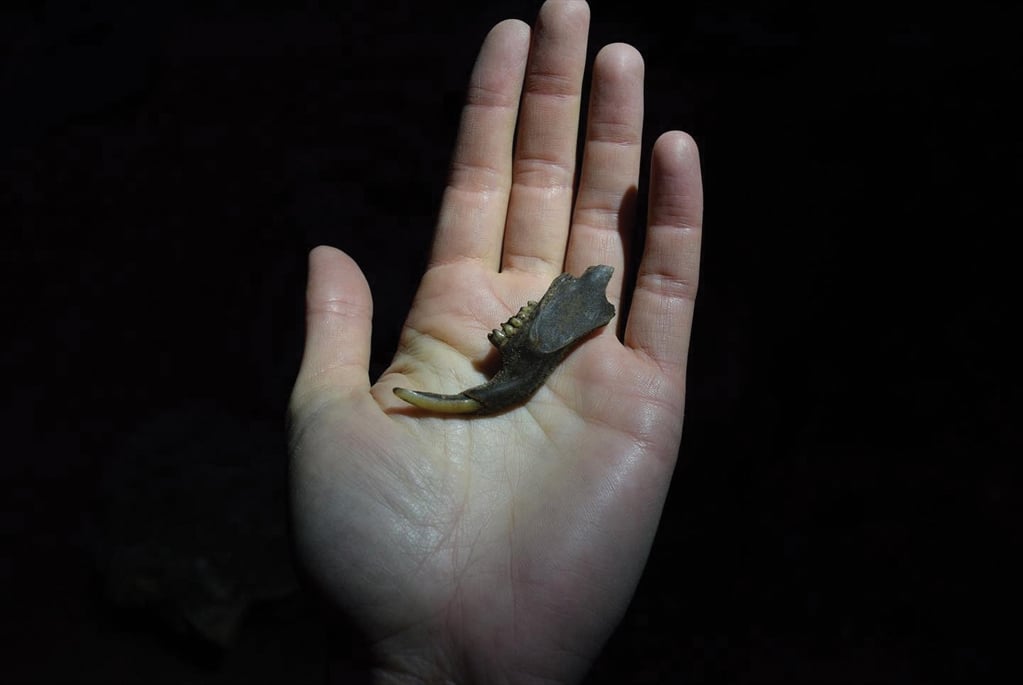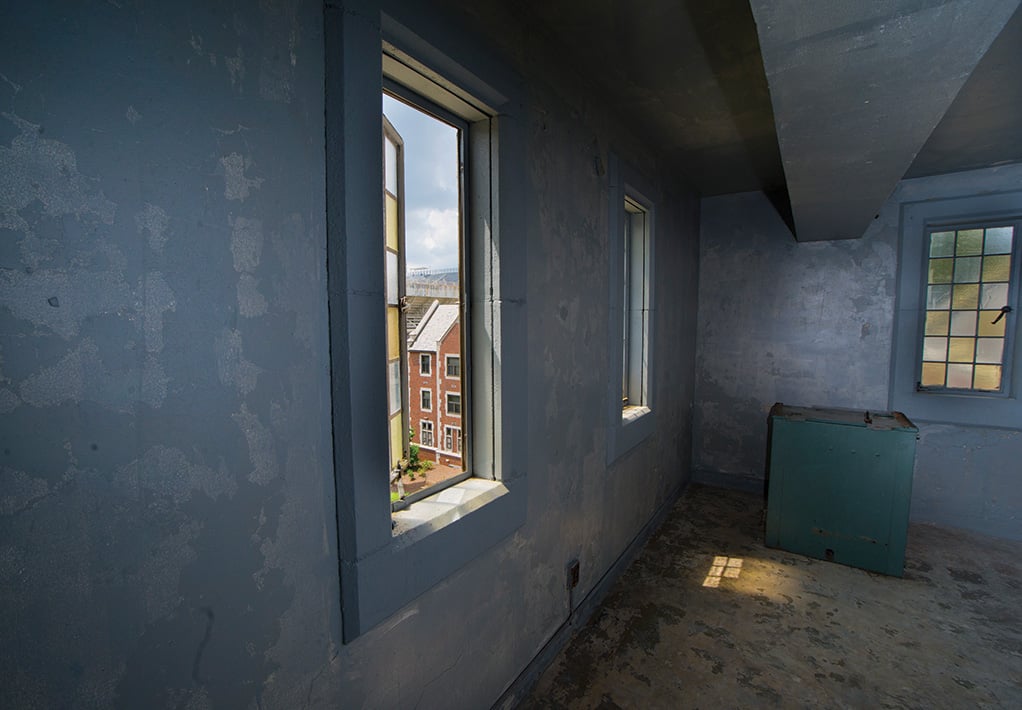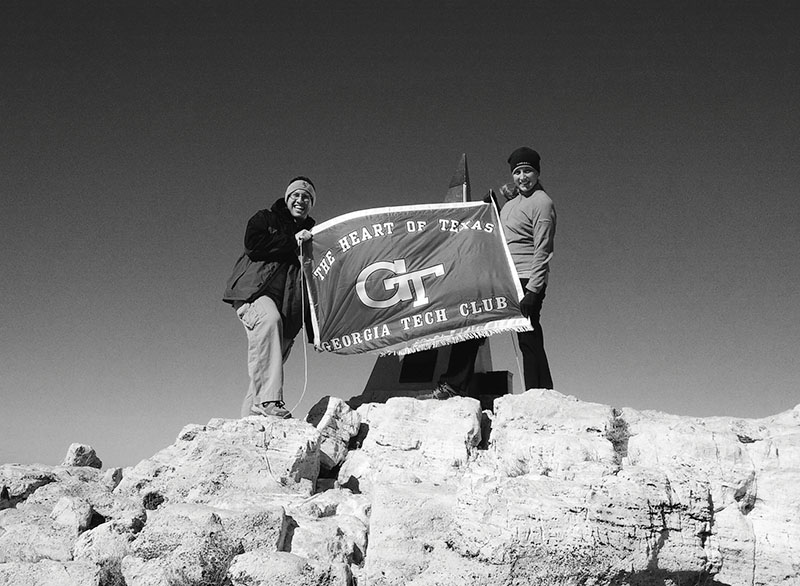Searching for 81,500 Americans Missing In Action
By: Jennifer Herseim | Categories: Alumni Association News
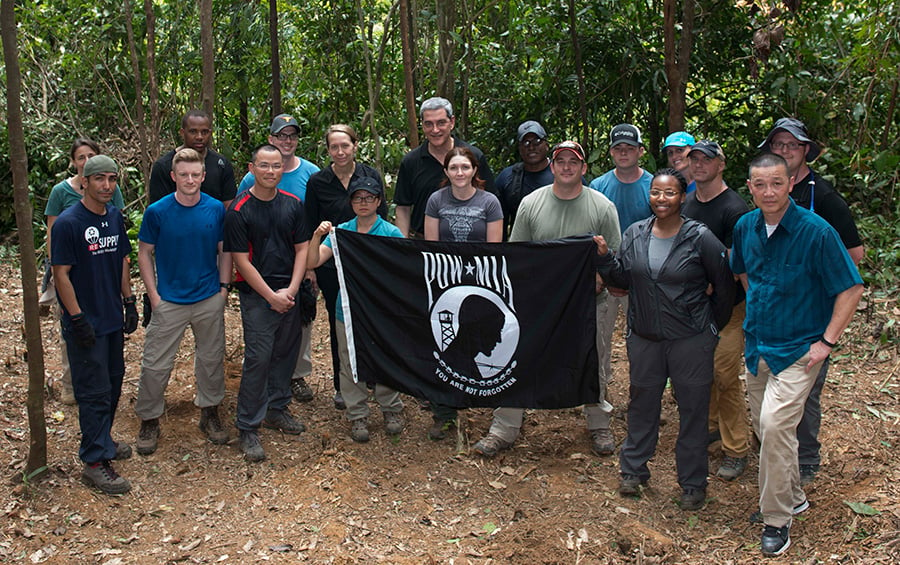
Kelly McKeague, IE 81, MS IE 87, is at the helm of the Defense POW/MIA Accounting Agency tasked with searching for, finding, recovering, and identifying Americans missing from past wars. “In a small way, I see this as paying back a debt that none of us Americans can truly pay back because of their supreme sacrifice in war,” McKeague says.
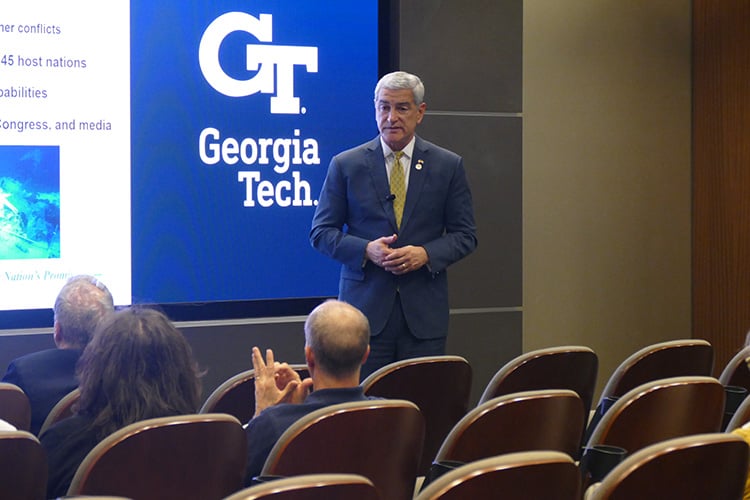
McKeague returned to Georgia Tech in April 2024 at the invitation of the College of Liberal Arts to speak to alumni, faculty, students, and staff about the agency.
Memorial Day is a time to recognize and honor those who gave their lives in service to our country, including those whose remains have not yet been found. More than 81,500 Americans remain missing around the world from past conflicts, including World War II, the Korean War, the Vietnam War, the Cold War, and the Gulf Wars.
Double Jacket Kelly McKeague, IE 81, MS IE 87, directs the agency responsible for investigating, recovering, identifying, and returning home remains to bring closure to their families and the nation.
“This is a national commitment,” McKeague says. “I look at our mission as a sacred obligation, simply because these are men and women who answered the call of duty, fought for their country, preserving our freedoms and liberties, and did not come home,” McKeague says. “It’s also a moral imperative that we owe not just to them but to their families.”
The figures are daunting, and many factors, including strained diplomatic ties, environmental conditions, development at recovery sites, and the loss of critical witnesses as time passes can complicate recovery efforts, but McKeague isn’t deterred. “We estimate there are 38,000 Americans who are recoverable. We have been able to identify 200 a year. One might think that’s just a number but absolutely not. Every single one has a unique story.”
One of those stories was the discovery of the remains of Captain Lawrence Dickson, who was one of 27 Tuskegee Airmen unaccounted for from World War II. When Dickson went off to fight in the war, he left behind a two-year-old daughter named Marla. When the agency and its partners (the University of New Orleans, University of Innsbruck, and the World War II Museum) recovered his remains 75 years after he went missing, they also found his harmonica and his wedding ring. His daughter wore his wedding ring on a chain around her neck when she was able to finally bury her father at Arlington National Cemetery.
“In a small way, I see this as us paying back a debt that none of us as Americans can repay because of their supreme sacrifice made in war,” McKeague says. Dickson’s story was one of many that McKeague shared with Tech alumni, faculty, students, and staff this April when he spoke on campus at the invitation of the College of Liberal Arts.
In Search of Answers
The Defense POW/MIA Accounting Agency’s historians and analysts pore over historical records and artifacts to find clues to hopefully narrow down the search for a missing American to a specific area. “We don’t have easy cases, or they would have been found before,” McKeague says. “We are usually dealing with the hard cases that are difficult to find.”
The agency works with 46 countries around the world to get access to these sites. Once an area is identified, the agency sends a small team to investigate. If they find evidence that correlates with the records, they’ll send a team led by an anthropologist or archaeologist to excavate the site, sifting through soil for any evidence such as dog tags, uniforms, or remains. Remains are sent back to one of two forensic laboratories, where they use seven lines of evidence to find a match.
“Our forensic scientists are preeminent in the world and together with renown DNA scientists, they are able to identify individuals despite degraded bones that have been subject to environmental degradation for decades,” McKeague says.
One line of evidence the agency uses is isotope analysis that pinpoints a person’s country of origin. This method has been critical for quickly segregating comingled remains and repatriating those remains from other countries, McKeague says.
“What you eat and drink as a child stays with you for life. We’re able to take a tiny bone cutting and run it through an isotope analysis to determine where someone grew up,” he says.
The agency also uses artificial intelligence and machine learning to analyze data sets—in some cases to analyze hundreds of thousands of scanned handwritten records from the 1940s and ’50s. AI has also expedited underwater searches by helping excavation teams map the ocean floor and identify anomalies faster than human teams have done in the past, McKeague says.
“Really, we’re just scratching the surface with this technology,” he says.
A Four-Year Commitment
McKeague, who was born and raised in Hawaii, realized early on that the military would be his ticket to an education outside of Hawaii. With an Air Force ROTC scholarship, he chose Georgia Tech for its reputation for industrial engineering. Atlanta’s mild winters might have swayed him, too. “I wasn’t too sure about this thing called ‘snow,’” he jokes.
Besides academics at Tech, he dove into extracurricular activities, becoming president of his fraternity, Sigma Nu, as well as president of the Interfraternity Council and ANAK. He was vice president of the Ramblin’ Reck Club and mentored elementary students through Big Brothers. “Tech teaches you critical thinking. It obviously teaches you problem-solving and hard work, but what I valued the most from my education and extracurricular activities was the relationship-building,” McKeague says.
He commissioned in 1981 through the Air Force ROTC at Georgia Tech. He served in a variety of assignments throughout his distinguished military career, including as the first Deputy Director of the newly established Defense POW/MIA Accounting Agency and as commander of the Joint POW/MIA Accounting Command at Joint Base Pearl Harbor-Hickam in Hawaii. He retired at the rank of major general in 2015 after a 34-year career in the U.S. Air Force.
“The skills I learned at Tech translated well into the Air Force,” he says. “Although I initially thought I would serve only my four-year commitment to the military, good opportunities led to great jobs, and I missed my mark by 30 years.”
No One Left Behind
The relationship-building skills that he honed at Tech are key to his current position, McKeague adds. Aside from the technological and diplomatic aspects of his work, a core component to the agency’s work is communicating with families.
“Families know the basics of their loved one’s loss in combat, but not having their remains created uncertainty that has exacerbated their grieving that they also carry generationally,” he says.
The agency holds family meetings throughout the year to provide updates about the search for their missing loved ones and for those families to come together to share with each other.
“Our nation is fulfilling a promise made to those it sent off to combat who did not return home as well as to their families and to veterans who lost their comrades-in-arms,” McKeague says. “This fulfillment also instills confidence in those serving in the military today to never leave a fallen comrade behind.”
